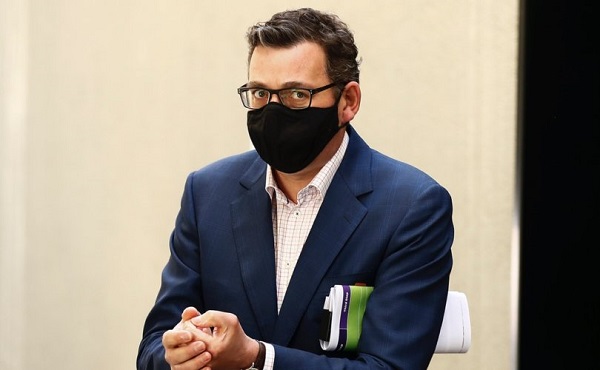Business
Trudeau gov’t pledges $42 million to the CBC to promote ‘independent journalism’

From LifeSiteNews
The budget did not explain how the CBC could provide “independent journalism” if the Trudeau government is paying its bills.
Canadian taxpayers will pay $42 million in additional funding for the Canadian Broadcasting Corporation (CBC) under the Trudeau government’s newly proposed budget.
According to the Liberal’s 2024 budget, published April 16, the CBC is set to receive $42 million in increased funding for 2024-25, as the outlet continues to lose credibility with Canadians.
The increased subsides aim to ensure “Canadians across the country, including rural, remote, Indigenous, and minority language communities, have access to high-quality, independent journalism and entertainment.”
The budget did not explain how the CBC could provide “independent journalism” if the Trudeau government is paying its bills.
The $42 million to the CBC is in addition to massive media payouts which already make up roughly 70 percent of its operating budget, and total more than $1 billion annually.
The payout is also in addition to another Trudeau government announcement that saw legacy media subsidies continue for the next five years to the tune of $129 million .
That subsidies are the CBC’s largest single source of income has become a point of contention among taxpayers who see the propping up of the outlet as unnecessary.
In addition to the increased payouts for the CBC, the budget promised $58.8 million to the Department of Canadian Heritage for the Local Journalism Initiative over three years beginning in 2024-25.
Indeed, recently stories published by the CBC seems to reveal the corporation’s bias to the Trudeau government and its agenda.
Earlier this week, Dr. Jordan Peterson slammed the CBC for only interviewing pro-LGBT doctors to discuss a U.K. report on the dangers of “sex changes” for children.
While the CBC claimed “Canadian doctors who spoke to CBC disagree” with the report, Peterson accused the CBC of purposefully only speaking to doctors who opposed the research.
Similarly, in January, the CBC produced a video seemingly justifying the intentional burning of numerous churches across Canada.
While taxpayer funding of legacy media continues to increase, credibility seems to be on the decline. According to a study by Canada’s Public Health Agency, less than a third of Canadians displayed “high trust” in the federal government, with “large media organizations” as well as celebrities getting even lower scores.
Business
After successful anti-American election campaign, Carney pivots to embrace US: Hails Trump as a “transformational president”
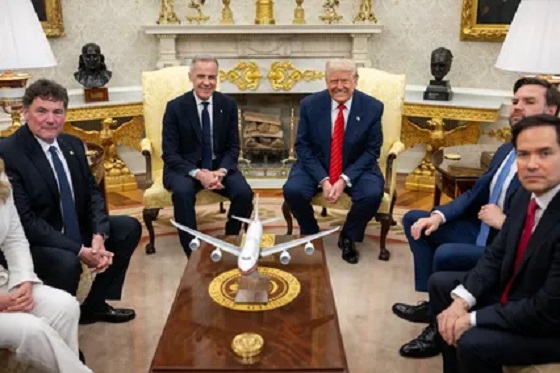
 MxM News
MxM News
Quick Hit:
Canadian Prime Minister Mark Carney met with President Donald Trump at the White House on Tuesday and praised the American leader as a “transformational president” with a relentless focus on workers, border security, and combatting fentanyl.
Key Details:
-
In front of reporters in the Oval Office, Carney said Trump was “focused on the economy, with a relentless focus on the American worker, securing your borders… ending the scourge of fentanyl and other opioids, and securing the world.”
-
The newly elected Canadian leader said he intends to implement a similar agenda in Canada, including heightened attention to border security, defense, and Arctic development.
-
Despite past trade friction between the two countries, Carney voiced confidence in the future of U.S.-Canada relations, stating, “We’re stronger when we work together… I look forward to addressing some of those issues that we have.”
Diving Deeper:
Canadian Prime Minister Mark Carney offered striking praise for President Donald Trump during a Tuesday visit to the White House, calling him a “transformational president” who has reshaped the global conversation on the economy, national security, and public health. Speaking alongside Trump in the Oval Office, Carney lauded the president’s focus on protecting American workers, confronting the fentanyl crisis, and reinforcing the nation’s borders.
“You’re a transformational president, focused on the economy, with a relentless focus on the American worker, securing your borders… ending the scourge of fentanyl and other opioids, and securing the world,” Carney told Trump.
According to Carney, many of the issues central to Trump’s presidency were also top concerns for Canadian voters. “I’ve been elected… with the help of my colleagues here, I’m going to spread the credit, to transform Canada with a similar focus on the economy, securing our borders, again, on fentanyl, much greater focus on defense and security, securing the Arctic and developing the Arctic,” he said.
Though the two leaders were cordial, the backdrop of their meeting carried a history of trade disputes. Early in Trump’s second term, his administration imposed tariffs on Canadian goods—a move that prompted retaliatory measures from then-Prime Minister Justin Trudeau. Still, Carney emphasized cooperation and struck a hopeful tone, noting that the U.S.-Canada relationship has endured challenges before.
“The history of Canada and the U.S. is we’re stronger when we work together, and there’s many opportunities to work together,” Carney said. “I look forward to addressing some of those issues that we have, but also finding those areas of mutual cooperation so we can go forward.”
President Trump, for his part, congratulated Carney on his election and offered warm words of welcome. “I want to just congratulate you. That was a great election, actually,” Trump said. “We were watching it with interest, and I think Canada chose a very talented person, a very good person… it’s an honor to have you at the White House and the Oval Office.”
The meeting marked Carney’s first official trip to Washington since taking office and served as an early sign that the two North American leaders may chart a path of renewed collaboration—grounded in shared priorities of national strength and economic growth.
Business
Reality check—Canadians are not getting an income tax cut
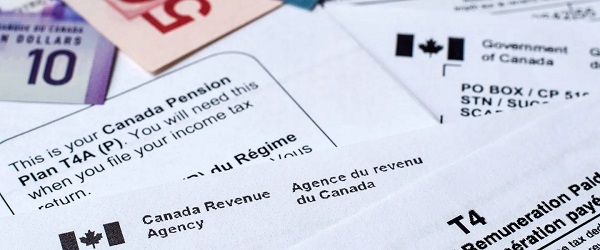
From the Fraser Institute
By Jason Clemens and Jake Fuss
On the campaign trail, both the Conservatives and the Liberals promised to cut personal income taxes, and with the Liberal Party winning a minority, one assumes the Carney government will fulfill the promise and reduce the bottom personal income tax rate from 15 to 14 per cent. However, in reality, due to the dismal state of federal finances, neither party actually offered a tax reduction but rather simply a deferral of taxes to the future.
The key variable in any government’s fiscal policy is spending. It represents the amount of resources the government plans to marshal for its various programs and transfers. At any given point in time, a country has only so many resources (i.e. raw materials, workers, equipment, etc.) and a government’s spending plan represents the share of those resources it intends to use for its purposes rather than leaving them in the hands of the people, families and businesses that actually created them.
Taxes are simply the way governments finance that spending. But it’s not the only way. Governments in many western countries, particularly Canada and the United States, have increasingly relied on borrowing to finance current spending. Instead of raising taxes today to pay for increased spending, governments defer those taxes into the future by borrowing and increasing government debt.
According to the Trudeau government’s last economic update, Ottawa expected to collect $516.2 billion this year (2025/26) but planned to spend $558.3 billion on programs and debt interest payments. The difference—$42.2 billion—represents how much the federal government plans to borrow.
According to the Liberal Party’s election platform, the promised tax cut to the lowest personal income tax rate will reduce revenues by a projected $4.2 billion this year. If the Liberal platform also reduced spending by at least the same amount, the tax cut would represent a real reduction in the amount of resources used by government and thus a genuine reduction in the tax bill for Canadians.
But the Liberal platform doesn’t reduce spending. In fact, it proposes marked increases ($29.4 billion this year) on already record levels of spending by the previous government. And the planned deficit this year is expected to increase from a projected $42.2 billion under Trudeau to $62.3 billion under Carney.
Put differently, Prime Minister Carney plans to use more resources in government for his new spending and investments compared to Trudeau. However, Carney plans to collect slightly less taxes now by shifting the burden to more borrowing, which simply means more debt and higher debt interest payments, and ultimately higher taxes in the future.
These decisions are not also without immediate costs. Under Trudeau, total federal debt increased from $1.1 trillion in 2014/15 (the year before he took office) to an expected $2.3 trillion this year. (Again, Carney plans to increase the amount of debt accumulated this year and at least the next three years.) Debt interest payments also increased from $24.2 billion the year before Trudeau took office to a projected $54.2 billion this year.
Carney’s plan, which includes higher debt levels, means those interest costs will increase. Interest payments represent resources extracted from Canadians that are not available for actual programs such as health care or genuine tax relief.
So while the new government may tell Canadians that its delivering tax relief, it’s not. It’s simply kicking the can down the road by financing higher spending through more borrowing. That means higher interest costs, higher debt and ultimately higher taxes in the future.
-

 COVID-192 days ago
COVID-192 days agoUS Government ADMITS It Approved Pfizer’s COVID “Vaccine” Despite Knowing About a Long List of Trial Violations
-
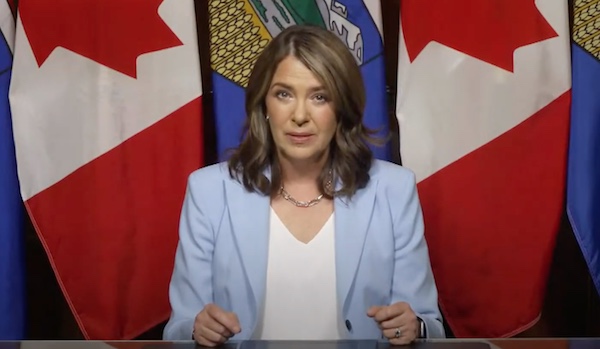
 Alberta1 day ago
Alberta1 day agoPremier Smith seeks Alberta Accord: Announces new relationship with Ottawa
-
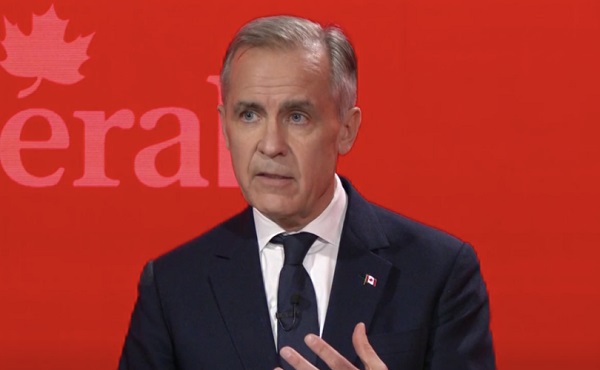
 Energy2 days ago
Energy2 days agoIs the Carney Government Prepared to Negotiate a Fair Deal for the Oil, Gas and Pipeline Sectors
-

 Business2 days ago
Business2 days ago‘Got To Go’: Department Of Energy To Cut Off Billions Of Dollars’ Worth Of Biden-Era Green Energy Projects
-

 Artificial Intelligence2 days ago
Artificial Intelligence2 days agoThe Responsible Lie: How AI Sells Conviction Without Truth
-
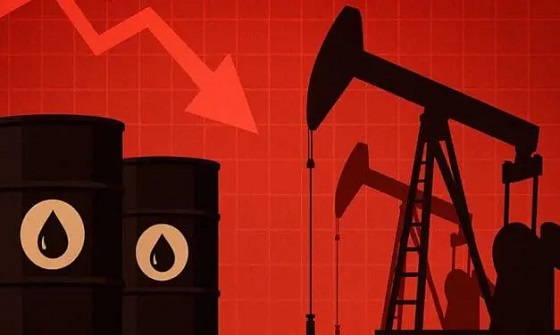
 Alberta1 day ago
Alberta1 day agoSaudi oil pivot could shake global markets and hit Alberta hard
-

 Agriculture1 day ago
Agriculture1 day agoCanada is missing out on the global milk boom
-
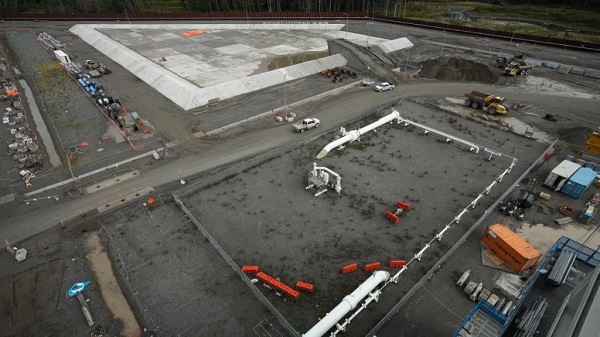
 Energy16 hours ago
Energy16 hours agoIt’s time to get excited about the great Canadian LNG opportunity



